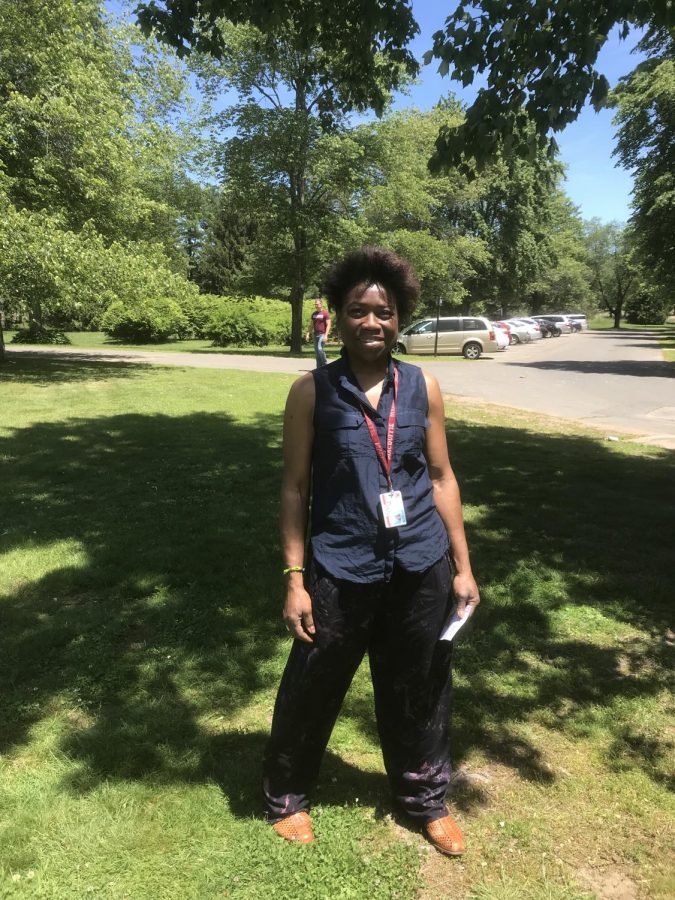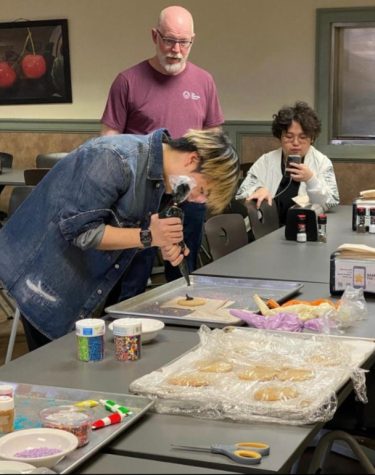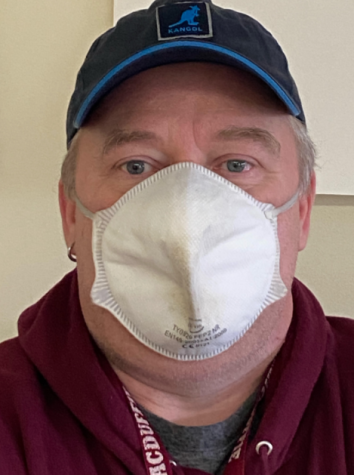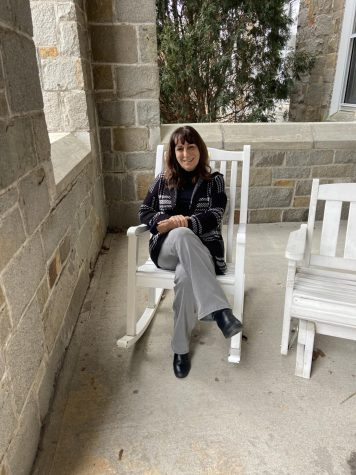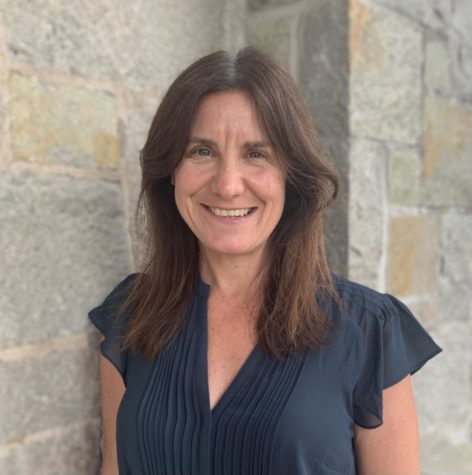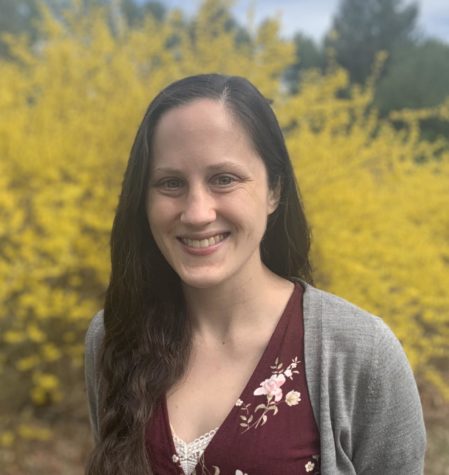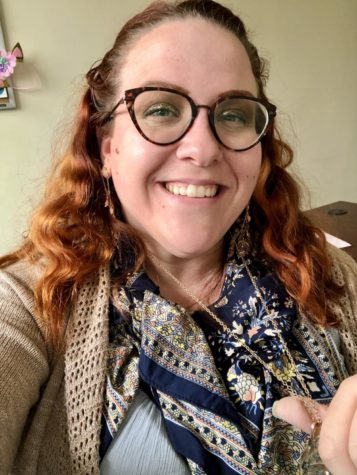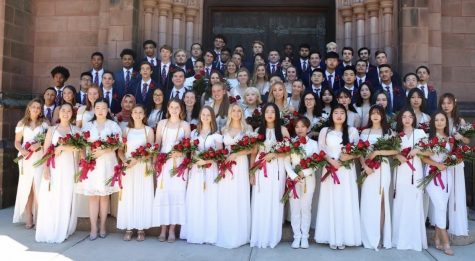Caballero to Depart From MacDuffie to Complete Second PhD Dissertation
June 7, 2019
“Wonderful place, good memories,” Spanish teacher Gloria Caballero said in regards to her experience as a member of MacDuffie’s faculty over the past four years. At the end of the 2018-2019 school year, Caballero will bid farewell to the MacDuffie community and work towards finishing the dissertation for her second PhD, “an in-depth research on race and representation in Cuba through the visual arts,” according to Caballero.
Caballero’s self-proclaimed “great beginning” at MacDuffie began in 2015 after a “pretty quick interview,” as she was asked to start teaching just two days afterwards. Before arriving at MacDuffie, Caballero had 26 years of teaching under her belt in both the United States and abroad at the high school and college levels.
When asked how MacDuffie stood out among the other institutions she has worked for, Caballero responded that the “freedom to be more creative” in structuring her classes similar to a college course was an aspect of MacDuffie that she particularly admired.
“At other places, it’s different. You have the regulations and this is what you teach,” Caballero said, adding that MacDuffie gives her the opportunity to teach students how to “be creative and solve a problem from different vantage points.”
Caballero noted that she also enjoyed the “feeling of commonality” at MacDuffie, as she experienced a deep connection among the students and faculty during her four years as a member of the MacDuffie community. Because of this “communion,” Caballero explained, she felt that students were not pressured to conform to the status quo.
“When I look back at my first year and fourth year,” Caballero said, “I see the students that started new that year, my first year, and they look so much more confident because this is the place that allows them to be…who they are.”
While she will primarily remember MacDuffie as a place of creativity and acceptance, Caballero certainly has sillier memories as well, such as a time in which several of her students scratched another student’s name out of their textbook as a practical joke.
Looking back on the moment, Caballero said, “It was hilarious because they… weren’t apologetic, they were just so fun to teach and we just had so much fun in that class.”
Another highlight of Caballero’s time at MacDuffie was helping to coach the ultimate frisbee team during her first year as well as playing an April Fool’s joke on her colleagues, both experiences that allowed Caballero to be herself and make others laugh.
Although Caballero’s experience teaching at MacDuffie was an overwhelmingly positive one, she decided that it was time for her to complete the four-year undertaking of her second PhD in order for her to “see some closure in that part of [her] life and [her] research, and move on.”
“Being a teacher took time away from me to focus on my dissertation and my research,” Caballero said. While she has completed the writing process of her dissertation, Caballero must meet with the tutor and director of her dissertation from the University of Oviedo in Asturias, Spain, as well as an institution in Poland in order to finalize her degree.
Although obtaining a Doctor of Philosophy, or PhD, is a significant achievement for any individual, Caballero’s research, which focuses on visual arts in Cuba in the context of the fall of the Communist bloc in 1989, holds immense sentimental value. Not only is Caballero a native to Cuba who experienced the “dire situation” of the late twentieth century firsthand, but the prominent Cuban artist whom she is researching for her dissertation is her own uncle, Eduardo “Choco” Roca.
Therefore, completing her PhD research gives Caballero the opportunity to reflect on her own past, specifically the unconventional beginning of her teaching career as the political turmoil in Cuba coincided with her college graduation.
“There was nothing you could rely on,” Caballero said. “I didn’t have an alarm clock… We didn’t have electricity, people burned their door frames to build bonfires and cook.”
After finishing her degree, Caballero does not have any concrete plans for her future, but hopes to continue teaching, “especially women, from underrepresented groups” about a “philosophical approach to living under pressure and… home decorating and fashion,” she explained.
Though Caballero’s departure represents the absence of a cherished member of MacDuffie’s faculty, the MacDuffie community wishes her luck in all of her future endeavors and appreciates all that she has contributed during her four years at MacDuffie.
